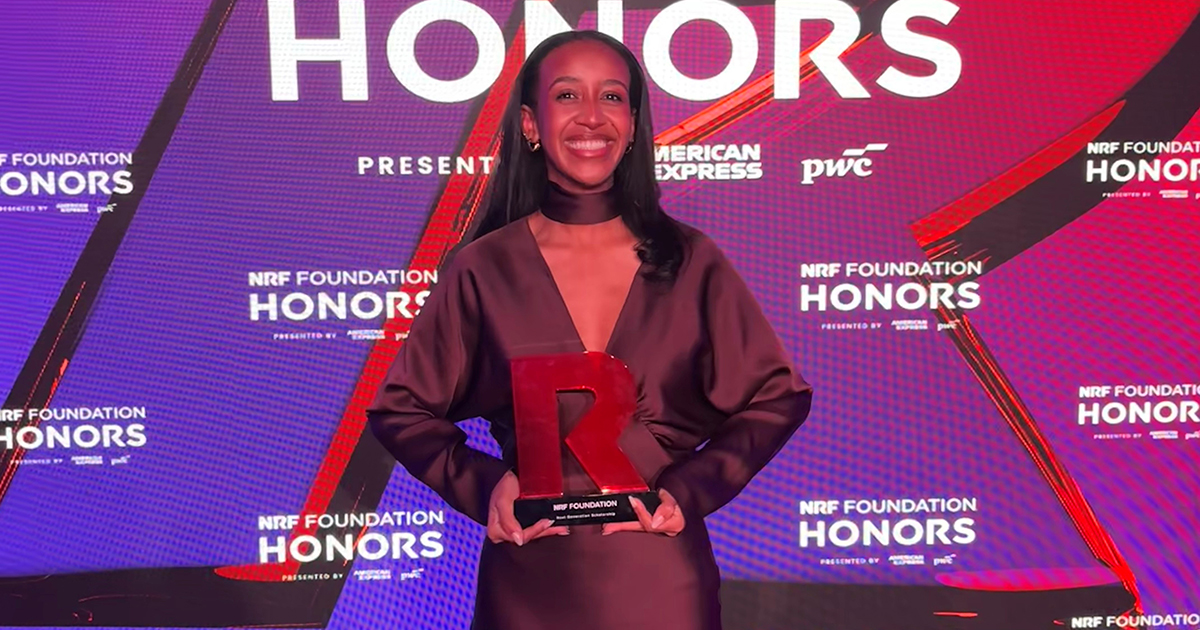Feeling Job Search Anxiety? Consider These Strategies

A job search can cause a lot of worry, and it can trigger an onslaught of nagging questions: Am I qualified? Do I have enough experience? Is this something I can or even want to do?
College students can feel job search anxiety pointedly. The career advising team at Babson’s Hoffman Family Undergraduate Center for Career Development (CCD) often hears from overwhelmed students. “It’s not unusual for a student to say, ‘How do I do all this?’ ” says Lee Goldstein, CCD senior associate director for career advising and education.
For college students—or anyone—feeling job hunt stress, here are seven strategies for staying positive and calm.
1. Work with Others
When feeling job search anxiety, understand that you are not alone. In an informal poll of Babson students, a survey labeled the “elephant in the room exercise,” CCD found that the second most common thing they’re concerned about is their future careers.
CCD staff encourage students not to isolate themselves. “Buddy up,” says Larinda Cole, CCD senior associate director for inclusion, diversity, equity, and access partnerships and advising. “Work with career advisors and other students to share information, deadlines, and experiences so you don’t feel like you are in this alone.”
2. Stay Confident
If students are feeling uncertain about the future, CCD staff asks them to look to the past. Think about times you have succeeded, they advise, or times when you overcame challenges. “What have you felt good about in the past?” says Brenda Kostyk, CCD associate director for identity, ability, and wellness partnerships and advising. “What are the things you have done that have made you feel alive?”
The goal is to instill hope and confidence. “We remind students they have already come this far,” Cole says. “We remind them they have been resilient.”
3. Be Active
Another help for job search anxiety is action. Career development takes initiative. Students shouldn’t wait to the last minute, throw together a resume, and call it good. There’s research to conduct and networks to build and cover letters to write.
“We talk about values a lot. Think about what is important to you. What is your dream position? What can you do now that can get you there?”
Lee Goldstein, senior associate director for career advising and education at the Hoffman Undergraduate Center for Career Development
To procrastinate is to invite worry. To fend off job hunt stress, get to work. “Career development requires active participation,” says Bryan Kanney, CCD associate director for career advising and education. “You’re not waiting until you’re a senior. Engage with us early and often.”
4. Target Opportunities
Wading through countless job openings can add to job search anxiety. To prevent themselves from being inundated with listings to peruse, students need to narrow down what they’re searching for, Cole says.
Start by creating a targeted list of companies and organizations, she says. Then go to the career pages on their websites and set alerts so to be notified when an opportunity becomes available.
Also use targeted searches, Cole advises, when utilizing career websites such as Handshake, Interstride, and LinkedIn. Students should set filters—for location, for preference for remote or in-person work—and then save their searches and edit notifications for how often they will receive a list of matches.
5. Do the Research
Make sure to research companies’ descriptions and values. “Conduct as much research as possible to be sure the culture seems supportive,” Goldstein says.
Try to speak with people who have dealt with a company’s hiring manager. “Determine if they are inclusive to different working styles and disabilities,” Goldstein says. “Culture and fit are extremely important in an organization, especially for those with a disability.”
Carefully read job descriptions. “Determine what you can do and the areas which may be challenging,” she says. “Know that what you could offer does not make you any less valuable. It could just be different.”
6. Take a Break
Remember that a job search takes a while. “The job and internship search requires similar time and effort to taking a class,” Cole says. Given that hectic reality, she says students should take a break sometimes.
“Buddy up. Work with career advisors and other students to share information, deadlines, and experiences so you don’t feel like you are in this alone.”
Larinda Cole, senior associate director for inclusion, diversity, equity, and access partnerships and advising at the Hoffman Undergraduate Center for Career Development
If needed, they should even take a break during the hubbub of a career fair, Kostyk says. Those events can be busy and stressful. If students need a moment to take notes, reflect, or catch their breath, they should step away. Babson has added quiet rooms at its career fairs for this purpose. The rooms are staffed by members of Peers on Wellness, a group of Babson students that champions health and wellness.
7. Don’t Compare
Students may be dealing with a lot of outside pressure. Their family may have made sacrifices for their education, so students may feel like they must live up to the expectations of those most dear to them.
Students also may feel pressure when they see friends land jobs in their desired fields. “The pressure is so high from the comparison,” says Hao He, CCD associate director. A student may think, “My roommate is getting this job at J.P. Morgan. I am supposed to get this, too.”
To avoid this tension, students should focus on their own career journeys, not those of others. “Do not compare yourself to your peers,” Goldstein says. “You can only compare yourself to who you were in the past.”
Students shouldn’t allow pressure from family or friends to lead them to a job they don’t want. Their own fulfillment is what matters. “We talk about values a lot,” Goldstein says. “Think about what is important to you. What is your dream position? What can you do now that can get you there?”
READ MORE about how Babson can prepare you for your dream job. Check out Babson Thought and Action’s ongoing series on career preparedness.
Why Babson Is the No. 1 School for Career Preparedness
What’s the Best Career for Me?
Posted in Outcomes




